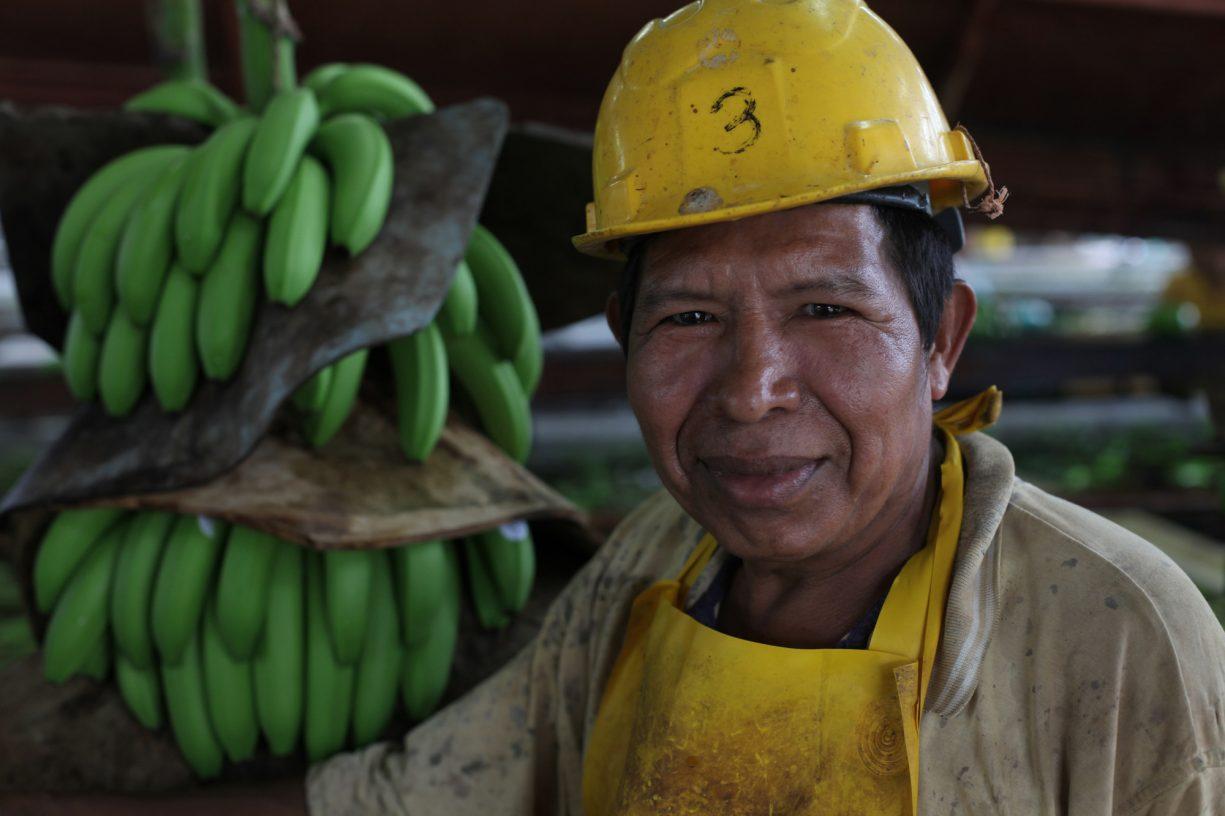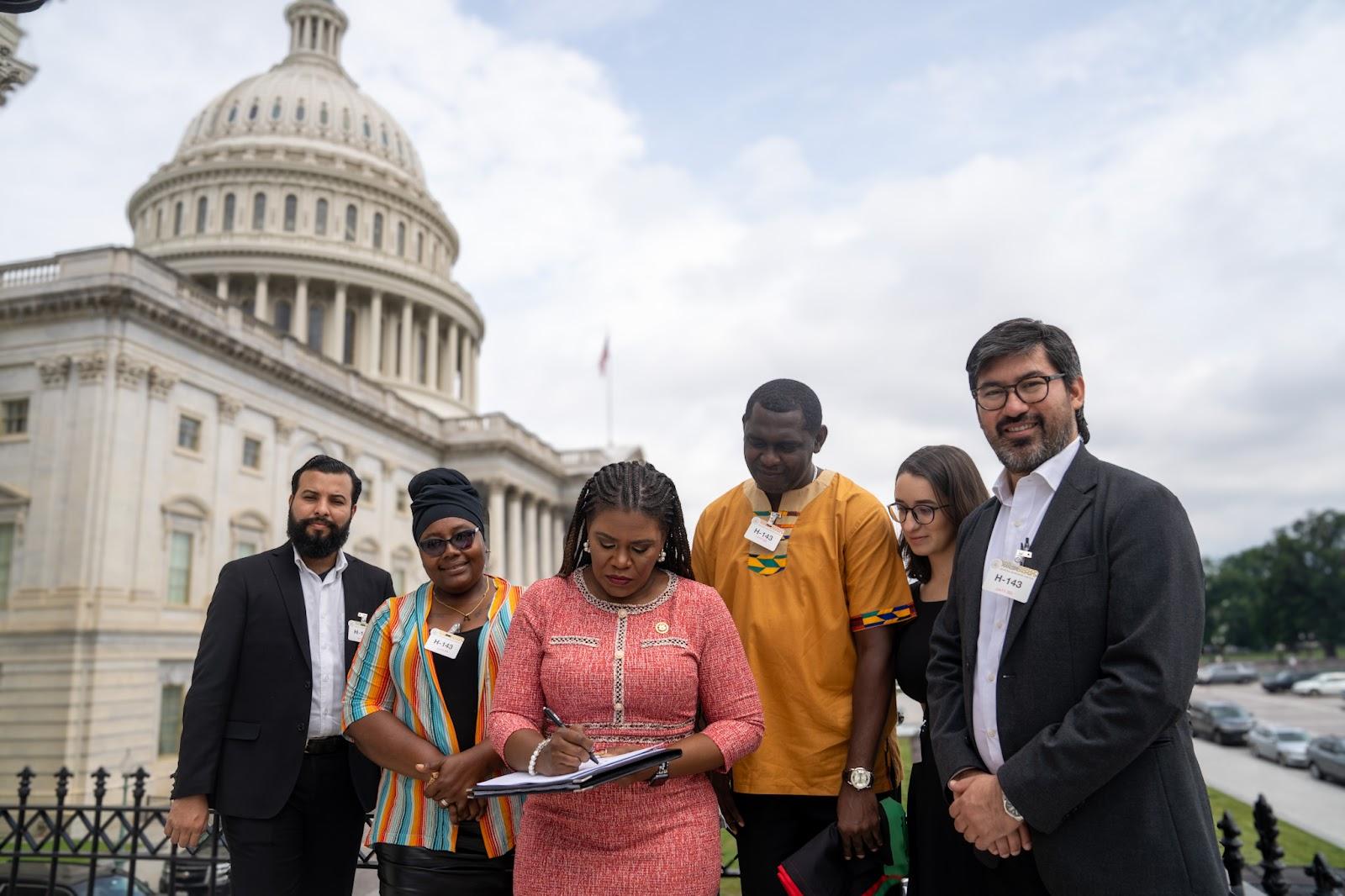We fight for a better deal for farmers, workers and the environment through a unique pricing model, rigorous standards and a global support network committed to making ethical trade the norm.
We do not grow bananas in the United States (save the odd local varieties you may find in Hawaii or Puerto Rico). During the four weeks between when a banana is picked to when it is purchased, it travels thousands of miles to get to US grocery stores. So how do they still cost less than apples that are grown locally?
There is no such thing as a cheap product. Somewhere, someone in the supply chain is paying for it—whether that is us, the end consumer, or the farmer, who may be forced by the market into unfair and unsustainable deals. There is always a cost. In the case of bananas, the costs of conventional (non-fair trade certified and non-organic) banana farming are many:
- Poverty
- Underpayment
- Health & safety risks
- Soil depletion
- Water shortages



